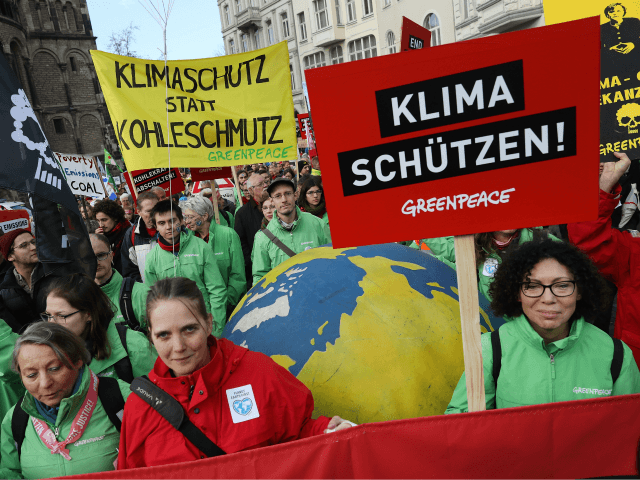Germany, epicentre of global environmentalism, is losing faith in the green dream. Its energy minister has admitted that it will fall some way short of its 2020 climate targets and that voters are weary of the renewable energy projects which in Germany alone cost taxpayers around €25 billion per year.
EurActiv reports:
Voters across Europe have lost faith in politics partly because of “unachievable targets” on renewable energy, said German Energy Minister Peter Altmaier, who rejected calls from a group of other EU countries to boost the share of renewables to 33-35% of the bloc’s energy mix by 2030. […]
“Germany supports responsible but achievable targets,” Altmaier said from the outset, underlining Berlin’s efforts to raise the share of renewables to 15% of the country’s overall energy mix.
But he said those efforts also carried a cost for the German taxpayer, which he put at €25 billion per year. “And if we are setting targets that are definitely above 30%, that means that within a decade, our share has to be more than doubled – clearly more than doubled,” Altmaier pointed out.
Meanwhile, France24 reports:
Rather than cutting emissions of the greenhouse gas by 40 percent compared with 1990 levels, Europe’s largest economy will manage reductions of just 32 percent, said the annual climate report for 2017 signed off by Chancellor Angela Merkel’s cabinet.
The shortfall of eight percentage points translates into around 100 million tonnes of carbon dioxide (CO2) pumped into the air annually.
These are shocking admissions from the country which has probably done more than any other to advocate for “clean energy”. Germany had set itself the ambitious target of becoming completely independent of fossil fuels in a scheme known as Energiewende.
Last year, the German Federal Ministry of Economics and Energy published a brochure claiming Energiewende had been a huge success story. But this was a lie according to this German research document, published in English under the name Compendium for a Sensible Energy Policy.
It says:
The Energiewende has the goal of making Germany independent of fossil fuels in the long term. Coal, oil and gas were to be phased out, allowing drastic reductions in carbon dioxide emissions. However, these goals have not even begun to be achieved.
The Energiewende was only driven forward in the electricity sector, which, accounts for only one-fifth of energy consumption. There were hardly any successes in the heating/cooling and transport sectors. And so carbon dioxide emissions in Germany have been rising since 2009, even though well over a hundred billion euros have been spent on the expansion of solar and wind energy over the same period.
The financial obligations undertaken in the process will continue to burden taxpayers for another two decades and will end up costing German consumers a total sum of around 550 billion euros. Despite this enormous effort, security of supply is increasingly under threat.
At the same time, people and the biosphere are suffering; wildlife protection has become subordinated to climate mitigation, even though the possibility of achieving the goals of reducing carbon dioxide emissions is becoming increasingly distant and the measures for the energy transition seem to become more and more questionable from a constitutional point of view.
This news is the latest in a series of disasters for the renewables industry. It follows a crash in the price of solar energy (after China decided to cut subsidies) and the failure of Britain’s wind turbines to produce energy for over a week.
Meanwhile, fossil fuels – especially the most hated one of all, coal – are experiencing an unlikely boom.
According to the Financial Times:
Thermal coal, tagged the least-loved major commodity by analysts, is defying sceptics, with prices rising to the highest level since 2012 thanks to strong Asian demand.
High-grade Australian thermal coal, the benchmark for the vast Asia market, was quoted at $112.60 a tonne on Monday by Argus Media.
The fuel, which is burnt in power stations to generate electricity, has now jumped 130 per cent from its 2016 lows, boosting the profits of big producers such as Glencore and Peabody. The price of South African thermal coal has also hit a six-year high as consumers in Asia scramble for supplies.
While thermal coal is being phased out in Europe on environmental grounds, it still accounts for about 40 per cent of energy consumption in emerging markets, especially Asia.
Demand from India, Japan and South Korea has been robust in the first five months of the year, while an early summer heatwave has lifted imports into China despite Beijing’s efforts to keep a lid on domestic coal prices.

COMMENTS
Please let us know if you're having issues with commenting.